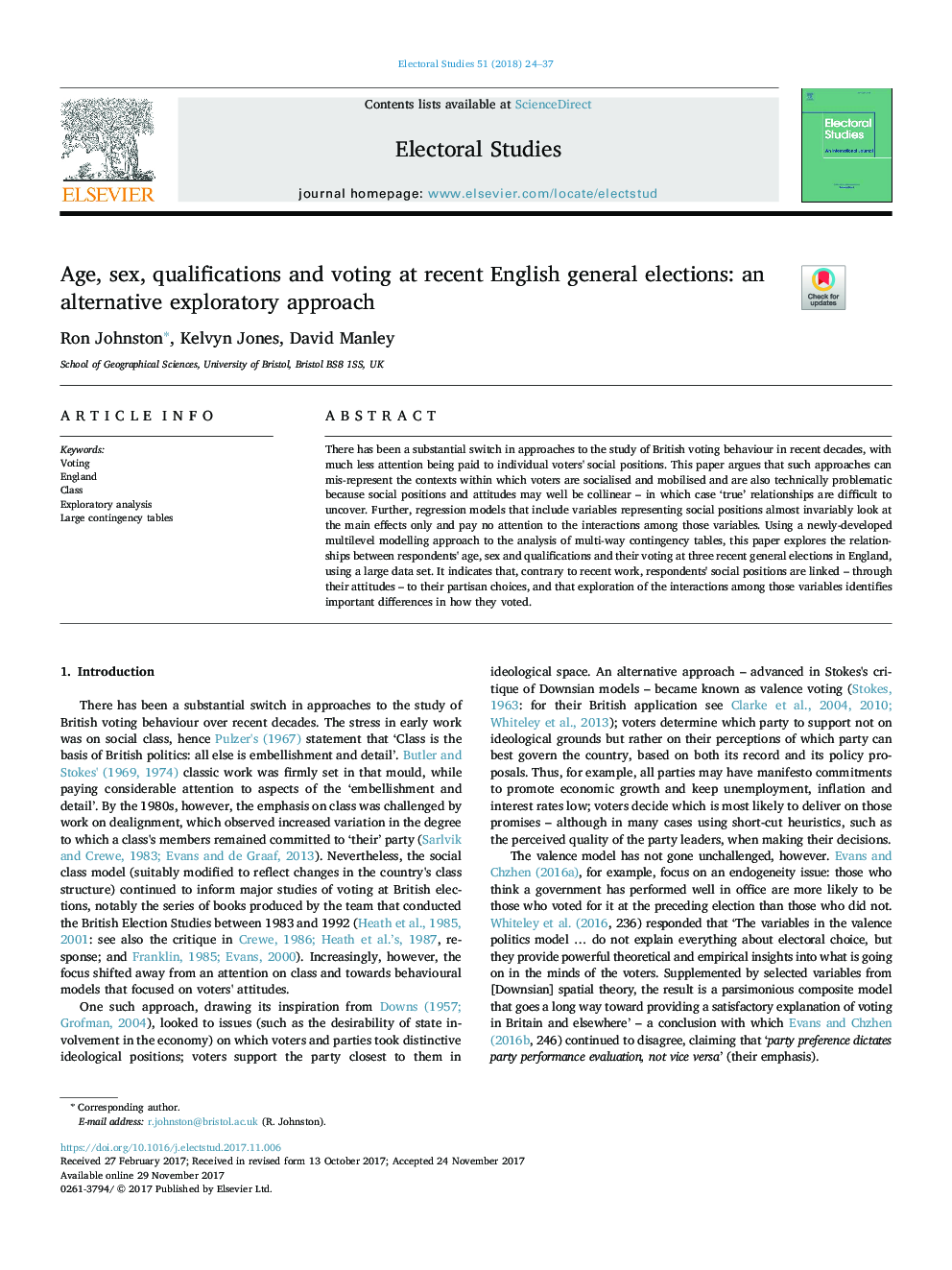| Article ID | Journal | Published Year | Pages | File Type |
|---|---|---|---|---|
| 7463326 | Electoral Studies | 2018 | 14 Pages |
Abstract
There has been a substantial switch in approaches to the study of British voting behaviour in recent decades, with much less attention being paid to individual voters' social positions. This paper argues that such approaches can mis-represent the contexts within which voters are socialised and mobilised and are also technically problematic because social positions and attitudes may well be collinear - in which case 'true' relationships are difficult to uncover. Further, regression models that include variables representing social positions almost invariably look at the main effects only and pay no attention to the interactions among those variables. Using a newly-developed multilevel modelling approach to the analysis of multi-way contingency tables, this paper explores the relationships between respondents' age, sex and qualifications and their voting at three recent general elections in England, using a large data set. It indicates that, contrary to recent work, respondents' social positions are linked - through their attitudes - to their partisan choices, and that exploration of the interactions among those variables identifies important differences in how they voted.
Related Topics
Social Sciences and Humanities
Social Sciences
Geography, Planning and Development
Authors
Ron Johnston, Kelvyn Jones, David Manley,
